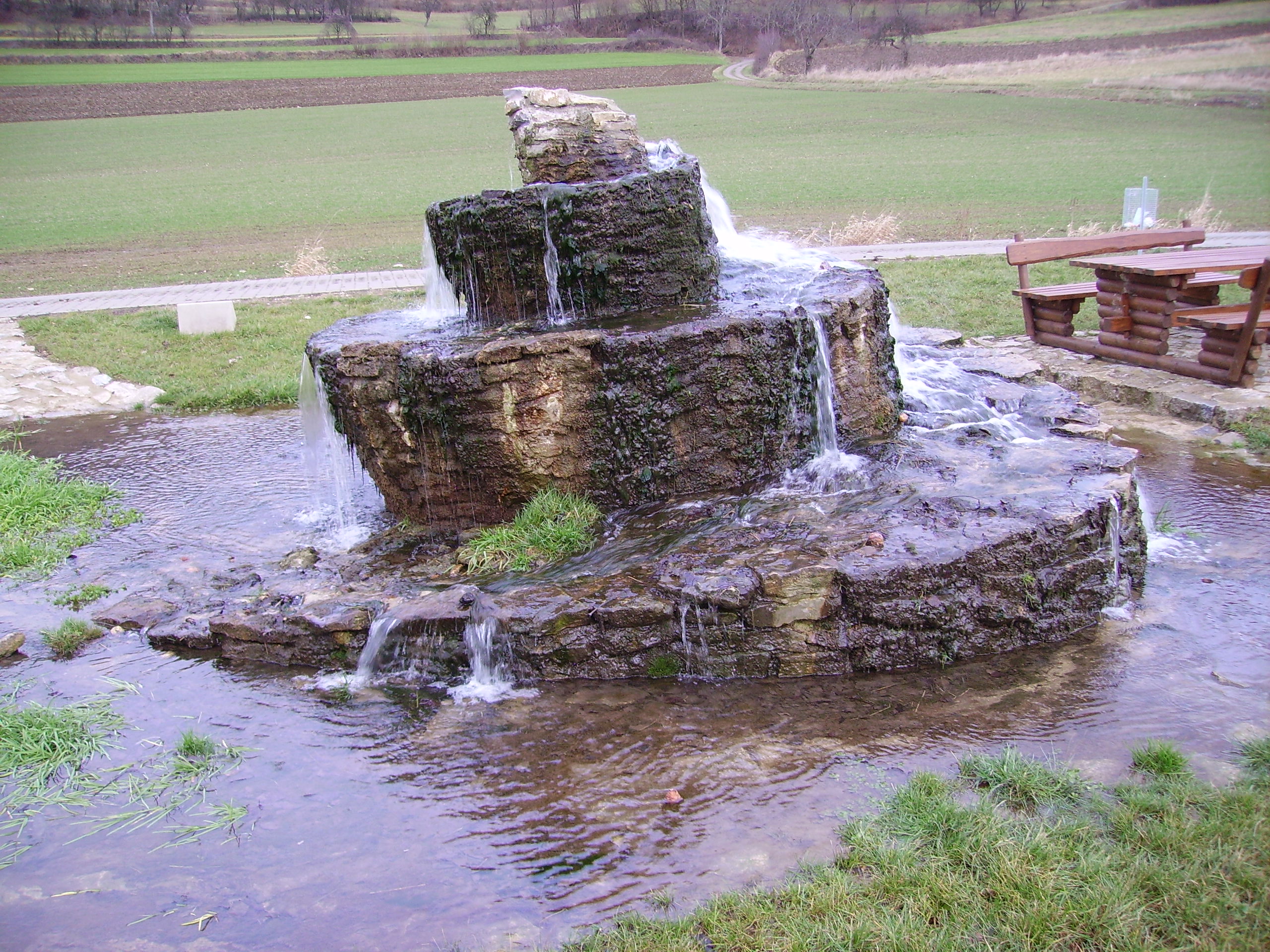|
Stegaurach
Stegaurach is a community and a village in the Upper Franconian district of Bamberg and the seat of the administrative community (''Verwaltungsgemeinschaft'') of Stegaurach. Geography The community lies in the valley of the Aurach, about 4 km west of Bamberg. Stegaurach lies in the Upper Franconia-West region. Constituent communities Stegaurach’s main and namesake centre is by far the biggest of its ''Ortsteile'' with a population of 4,033. The community furthermore has these outlying centres, each given here with its own population figure and dialectal name where there is one: *Debring (village) 484 *Dellerhof (farm) 17 *Dellern (farm) 32 *Hartlanden (village) 410, locally “Hädländ” *Höfen (village) 220, locally “Höfn” *Kaifeck (hamlet) 12 *Knottenhof (small hamlet) 5, locally “Knonhof” *Kreuzschuh (village) 210, locally “Kreutschi” *Mühlendorf (village) 807, locally “Müllndäff” *Mutzershof (hamlet) 67 *Seehöflein (village) 69 *Unteraurach (vill ... [...More Info...] [...Related Items...] OR: [Wikipedia] [Google] [Baidu] |
Bamberg (district)
Bamberg () is a Districts of Germany, ''Landkreis'' (district) in Bavaria, Germany. It surrounds but does not include the town of Bamberg. The district is bounded by the districts of (from the north and clockwise) Lichtenfels (district), Lichtenfels, Bayreuth (district), Bayreuth, Forchheim (district), Forchheim, Erlangen-Höchstadt, Neustadt (Aisch)-Bad Windsheim, Kitzingen (district), Kitzingen, Schweinfurt (district), Schweinfurt and Haßberge (district), Haßberge. History The history of the district is linked with the history of Bamberg. In 1862 the districts of Bamberg-West and Bamberg-East were established. They were merged in 1929. The present borders were established in 1972, when portions of the adjoining district of Erlangen-Höchstadt were annexed. Geography The district surrounds the town of Bamberg. The western half of the district is occupied by the Steigerwald, a hilly forest region. In the east there is the hill chain of the Franconian Jura. Between these re ... [...More Info...] [...Related Items...] OR: [Wikipedia] [Google] [Baidu] |
Ortsteil
A village is a human settlement or Residential community, community, larger than a hamlet (place), hamlet but smaller than a town with a population typically ranging from a few hundred to a few thousand. Although villages are often located in rural areas, the term urban village is also applied to certain urban neighborhoods. Villages are normally permanent, with fixed dwellings; however, transient villages can occur. Further, the dwellings of a village are fairly close to one another, not scattered broadly over the landscape, as a dispersed settlement. In the past, villages were a usual form of community for societies that practice subsistence agriculture and also for some non-agricultural societies. In Great Britain, a hamlet earned the right to be called a village when it built a Church (building), church. [...More Info...] [...Related Items...] OR: [Wikipedia] [Google] [Baidu] |
Christian Social Union Of Bavaria
The Christian Social Union in Bavaria (German language, German: , CSU) is a Christian democracy, Christian democratic and Conservatism in Germany, conservative List of political parties in Germany, political party in Germany. Having a regionalism (politics), regionalist identity, the CSU operates only in Bavaria while its larger counterpart, the Christian Democratic Union of Germany, Christian Democratic Union (CDU), operates in the other fifteen states of Germany. It #Relationship with the CDU, differs from the CDU by being somewhat more conservative in social matters, following Catholic social teaching. The CSU is considered the ''de facto'' successor of the Weimar Republic, Weimar-era Catholic Bavarian People's Party. At the federal level, the CSU forms a common faction in the Bundestag with the CDU which is frequently referred to as the Union Faction (''die Unionsfraktion'') or simply CDU/CSU. The CSU has had 43 seats in the Bundestag since the 2021 German federal election, ... [...More Info...] [...Related Items...] OR: [Wikipedia] [Google] [Baidu] |
Onet-le-Château
Onet-le-Château (; ) is a commune in the Aveyron department in southern France. Population See also *Communes of the Aveyron department The following is a list of the 285 communes of the Aveyron department of France. Out of the land area is being , and the percentage of the department's land area is just 34 per cent of its land area of an average commune. The communes cooperat ... References Communes of Aveyron Aveyron communes articles needing translation from French Wikipedia {{Aveyron-geo-stub ... [...More Info...] [...Related Items...] OR: [Wikipedia] [Google] [Baidu] |
Elementary School
A primary school (in Ireland, India, the United Kingdom, Australia, New Zealand, Trinidad and Tobago, Jamaica, South Africa, and Singapore), elementary school, or grade school (in North America and the Philippines) is a school for primary education of children who are 4 to 10 years of age (and in many cases, 11 years of age). Primary schooling follows preschool and precedes secondary schooling. The International Standard Classification of Education considers primary education as a single phase where programmes are typically designed to provide fundamental skills in reading, writing, and mathematics and to establish a solid foundation for learning. This is ISCED Level 1: Primary education or first stage of basic education.Annex III in the ISCED 2011 English.pdf Navigate to International St ... [...More Info...] [...Related Items...] OR: [Wikipedia] [Google] [Baidu] |
Kindergarten
Kindergarten is a preschool educational approach based on playing, singing, practical activities such as drawing, and social interaction as part of the transition from home to school. Such institutions were originally made in the late 18th century in Germany, Bavaria and Alsace to serve children whose parents both worked outside home. The term was coined by German pedagogue Friedrich Fröbel, whose approach globally influenced early-years education. Today, the term is used in many countries to describe a variety of educational institutions and learning spaces for children ranging from two to six years of age, based on a variety of teaching methods. History Early years and development In 1779, Johann Friedrich Oberlin and Louise Scheppler founded in Strasbourg an early establishment for caring for and educating preschool children whose parents were absent during the day. At about the same time, in 1780, similar infant establishments were created in Bavaria. In 1802, Princ ... [...More Info...] [...Related Items...] OR: [Wikipedia] [Google] [Baidu] |
Transport
Transport (in British English) or transportation (in American English) is the intentional Motion, movement of humans, animals, and cargo, goods from one location to another. Mode of transport, Modes of transport include aviation, air, land transport, land (rail transport, rail and road transport, road), ship transport, water, cable transport, cable, pipeline transport, pipelines, and space transport, space. The field can be divided into infrastructure, vehicles, and operations. Transport enables human trade, which is essential for the development of civilizations. Transport infrastructure consists of both fixed installations, including roads, railways, airway (aviation), airways, waterways, canals, and pipeline transport, pipelines, and terminals such as airports, train station, railway stations, bus stations, warehouses, trucking terminals, refueling depots (including fuel docks and fuel stations), and seaports. Terminals may be used both for the interchange of passengers and ... [...More Info...] [...Related Items...] OR: [Wikipedia] [Google] [Baidu] |
Euro
The euro (currency symbol, symbol: euro sign, €; ISO 4217, currency code: EUR) is the official currency of 20 of the Member state of the European Union, member states of the European Union. This group of states is officially known as the euro area or, more commonly, the eurozone. The euro is divided into 100 1 euro cent coin, euro cents. The currency is also used officially by the institutions of the European Union, by International status and usage of the euro, four European microstates that are not EU members, the British Overseas Territory of Akrotiri and Dhekelia, as well as unilaterally by Montenegro and Kosovo. Outside Europe, a number of special territories of EU members also use the euro as their currency. The euro is used by 350 million people in Europe and additionally, over 200 million people worldwide use currencies pegged to the euro. It is the second-largest reserve currency as well as the second-most traded currency in the world after the United Sta ... [...More Info...] [...Related Items...] OR: [Wikipedia] [Google] [Baidu] |
Social Democratic Party Of Germany
The Social Democratic Party of Germany ( , SPD ) is a social democratic political party in Germany. It is one of the major parties of contemporary Germany. Saskia Esken has been the party's leader since the 2019 leadership election together with Lars Klingbeil, who joined her in December 2021. After losing the 2025 federal election, the party is part of the Merz government as the junior coalition partner. The SPD is a member of 12 of the 16 German state governments and is a leading partner in seven of them. The SPD was founded in 1875 from a merger of smaller socialist parties, and grew rapidly after the lifting of Germany's repressive Anti-Socialist Laws in 1890 to become the largest socialist party in Western Europe until 1933. In 1891, it adopted its Marxist-influenced Erfurt Program, though in practice it was moderate and focused on building working-class organizations. In the 1912 federal election, the SPD won 34.8 percent of votes and became the largest party in t ... [...More Info...] [...Related Items...] OR: [Wikipedia] [Google] [Baidu] |
Reichsdeputationshauptschluss
The ' (formally the ', or "Principal Conclusion of the Extraordinary Imperial Delegation"), sometimes referred to in English as the Final Recess or the Imperial Recess of 1803, was a resolution passed by the ' (Imperial Diet) of the Holy Roman Empire on 24 February 1803. It was ratified by the Francis II, Holy Roman Emperor, Emperor Francis II and became law on 27 April. It proved to be the last significant law enacted by the Empire before its dissolution in 1806. The resolution was approved by an Imperial Delegation (') on 25 February and submitted to the ' for acceptance. It was based on a plan agreed in June 1802 between France and Russia, and broad principles outlined in the Treaty of Lunéville of 1801. The law secularized nearly 70 ecclesiastical states and abolished 45 imperial cities to compensate numerous German princes for territories to the west of the Rhine that had been annexed by France as a result of the French Revolutionary Wars. Secularization and mediatization ... [...More Info...] [...Related Items...] OR: [Wikipedia] [Google] [Baidu] |
Bavaria
Bavaria, officially the Free State of Bavaria, is a States of Germany, state in the southeast of Germany. With an area of , it is the list of German states by area, largest German state by land area, comprising approximately 1/5 of the total land area of Germany, and with over 13.08 million inhabitants, it is the list of German states by population, second most populous German state, behind only North Rhine-Westphalia; however, due to its large land area, its population density is list of German states by population density, below the German average. Major cities include Munich (its capital and List of cities in Bavaria by population, largest city, which is also the list of cities in Germany by population, third largest city in Germany), Nuremberg, and Augsburg. The history of Bavaria includes its earliest settlement by Iron Age Celts, Celtic tribes, followed by the conquests of the Roman Empire in the 1st century BC, when the territory was incorporated into the provinces of Ra ... [...More Info...] [...Related Items...] OR: [Wikipedia] [Google] [Baidu] |
Bayerisches Landesamt Für Statistik
The statistical offices of the German states (German language, German: ) carry out the task of collecting official statistics in Germany together and in cooperation with the Federal Statistical Office of Germany, Federal Statistical Office. The implementation of statistics according to Article 83 of the Basic Law for the Federal Republic of Germany, constitution is executed at state level. The Bundestag, federal government has, under Article 73 (1) 11. of the constitution, the exclusive legislation for the "statistics for federal purposes." There are 14 statistical offices for the States of Germany, 16 states: See also * Federal Statistical Office of Germany References {{Reflist National statistical services, Germany Lists of organisations based in Germany, Statistical offices Official statistics, Germany ... [...More Info...] [...Related Items...] OR: [Wikipedia] [Google] [Baidu] |






